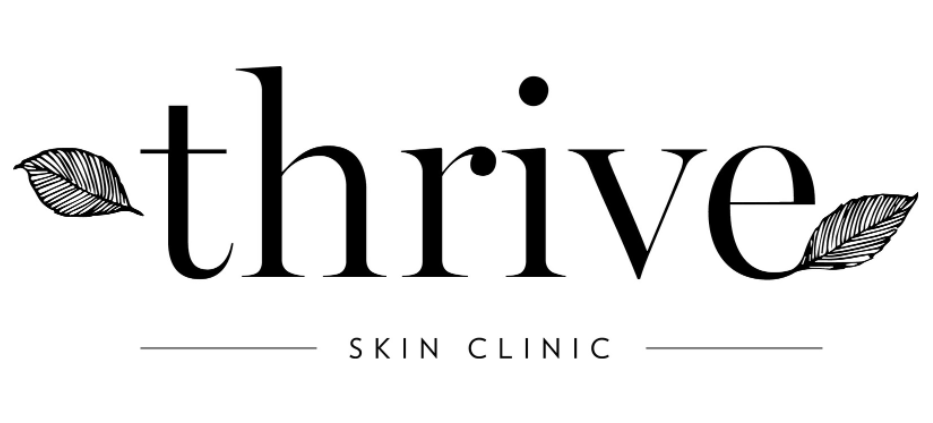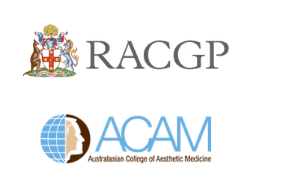Feeling confident about your skin and your face is important, especially if you have a forward facing job. As a middle-aged professional, I know that when my skin looks good, I feel more confident and less anxious with my patients and my peers.
Getting older and going through perimenopause can sometimes be really challenging, and we need a bit of help "fake it to you make it" mentality to put our best foot forward.
I am passionate about #preventativeaesthetics and #proactiveageing. Here are some tips to start you thinking about your home care choices for healthy skin to help you age with beautiful skin:
🌿 Tip 1: Skin care should be customised, by someone knowledgeable - not a robot
Prescription home care implies a personal relationship with an experienced clinician, not a book, email /text sequence or a website.
Yes, a real person, who can look and touch your skin, review your lifestyle and medical history and match your expectations with a set plan.
Take your advice from an experienced professional - be it an advanced beauty therapist, dermal therapist, registered nurse, skin doctor or dermatologist - ask about their experience and education. Expect a university or post graduate studies in skin and dermatology, not just a weekend course. Injectors usually do not study skin or dermatology, so even though your injector might be a gun with a needle, it is not guaranteed that they are knowledgeable about the skin!
🌿 Tip 2: Start where your skin is. Be Honest, and listen to your skin.
You can't just walk into a gym and lift 100kg - the same goes with skin care.
If you have not used skin care in the past, or have thin or sensitive skin, you need to start slowly with simple gentle products. Slowly review your home care routine every few months - results will come with a goal and slow progression.
Yes medical grade skin care can give you amazing results, but if you go straight to the hard stuff, and your skin is not strong or resilient, your skin will get worse - breakouts, redness, itch and dryness are common.
🌿 Tip 3: Less it more. Nurture your skin, don't strip it.
After lockdown, I have seen countless patients with perioral dermatitis, or sensitised skin caused by overuse of retinoids, exfoliants, and inappropriate product use - this can take months to resolve. The other thing you need to do is learn to listen to your skin. Skin is a biological organism and will change with the seasons, your hormones, stress and your nutritional state. If it is dry or irritated, take a step back and pare back your skin care regimen!
Nurture your skin first and foremost - here is a simple routine to start out, which will improve your skin barrier
AM: Cleanse, Vitamin B Serum (niacinamide), SPF.
PM: Cleanse, Vitamin B Serum, Moisturiser.
If you want something a bit more exciting, or have congested, oily skin - introductory kits from @SynergieSkin are also a great place to start. You can choose from a variety of products, they are relatively inexpensive, and they are suited to most skin types. They have now changed the formulation of their Vitamin C products. ✅ Big tick from me:)
Once you have started with this plan- then drop in to see a good clinic, review your skin, your goals, and come up with a plan, including regular reviews.
🌿 Tip #4 : Ask questions & follow instructions
More is not always better (apart from sun cream).
For best results, I recommend using a pea size of retinol 3 times per week, avoiding the eye region to prevent sensitisation. Make sure you follow the instructions - if you are too gung ho, you may encounter issues. It is my pleasure to provide you with handouts on my website. Please feel free to access and use them as you require.
Prescription hydroquinone, for example, is only safe for use for a limited timeframe (e.g. three to four months). You should understand what you are using and why, as well as the risks and safety in pregnancy (if you are a woman of childbearing years). The more questions you ask, and more informed you are, the better your choices will be.
🌿 Tip #5: Quality matters
Invest in well formulated "active" cosmeceuticals, based on evidence and research.
Do not buy based on branding, attractive packaging and marketing - department store products are not active, and they are sold by people interested in sales, not clinicians. You can get better results, with less expense, if you use prescribed products.
In order to make an informed decision, you must do your research. Evidence based skin care does exist. Research and formulation of products take time and money - your purchase represents this expertise, and you will benefit from it now and in the future.
You cannot go wrong with @SkinBetterScience for a good brand recommendation. If you have resilient skin, you could also speak to your doctor about starting Tretinoin (a prescription retinoid). It's not for everyone, but it's incredible and relatively inexpensive for the right candidate.
🌿 Tip #6: Prevention is better than cure - wear SPF every day of your life!
It is much easier and less expensive to prevent lines, wrinkles, loose skin, pigmentation, redness and skin cancer than it is to fix it. Seeing as 80 - 90% of these issues are caused by UV exposure, the best intervention for you now is to wear suncream.
Fall in love with your SPF and your skin will thank you in 20 years. Personally, I love Synergie Skin Uberzinc but it's not for everyone - make it your mission to seek out an SPF you love and embrace it daily - rain, hail or shine.







